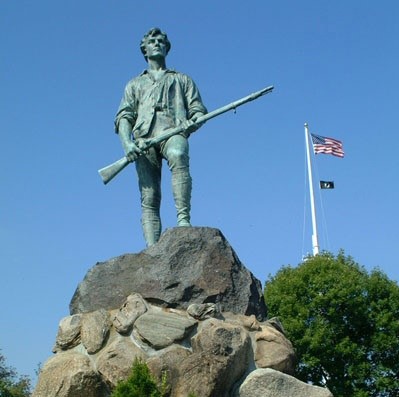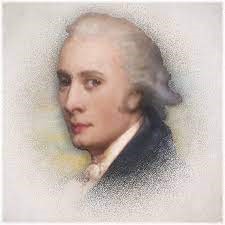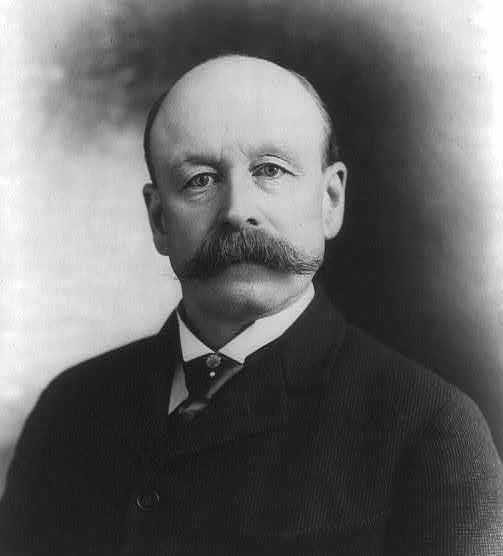 Patriots’ Day commemorates the Battle of Lexington that took place early on the morning of April 19, 1775. The day was first dubbed “Patriots’ Day” in 1894 to commemorate the battle. The Town of Lexington was established by the Parish of Cambridge Farms in 1713. However, the historic origin of what became known as Patriots’ Day goes back much further than 1894 or 1713. Its roots are in the spiritual liberty of the people of God displayed in public days of fasting and prayer, and in the role of the militias to preserve the fruit of civil liberty.
Patriots’ Day commemorates the Battle of Lexington that took place early on the morning of April 19, 1775. The day was first dubbed “Patriots’ Day” in 1894 to commemorate the battle. The Town of Lexington was established by the Parish of Cambridge Farms in 1713. However, the historic origin of what became known as Patriots’ Day goes back much further than 1894 or 1713. Its roots are in the spiritual liberty of the people of God displayed in public days of fasting and prayer, and in the role of the militias to preserve the fruit of civil liberty.
The Bible instructs God’s people to inspire ecclesiastical and civil leaders to call public days of fasting and prayer when facing tyranny or a rising tide of iniquity. In addition to the God-given responsibilities of life and property, everyone has the right to preserve their liberty. When facing major challenges, the Pilgrims, as students of the Bible, called days of fasting and prayer, recognizing that spiritual liberty from sin gives rise to the self-government necessary to preserve civil liberty. Derek Prince, after visiting Plymouth in 1970 and being tutored by John Talcott, wrote, “One distinctive practice employed by the pilgrims to achieve their spiritual goals was that of united, public prayer and fasting.”
Built on the theology of the Pilgrims and Puritans, New England continued calling special days of prayer and fasting. They were regional, beyond a single congregation. By their very nature, they required a greater depth of unity among believers. Initially, the Pilgrims’ harvest festival of 1621, their fast and Thanksgiving Day in 1623, and subsequent special days of prayer and fasting were sporadic and not annual. Thomas Lechford noted as much in 1867, writing: “There are days of fasting, thanksgiving and prayers upon occasions but no holy days, except the Sunday.”
 It was on April 19, 1694 that the Massachusetts State Legislature (General Court) called the first annual prayer and fast day. It was called to repent of the travesty of the Salem Witch Trials of 1692. These “trials” violated Biblical due process (innocent until proven guilty) and unlawfully took the life, liberty, and property of many. Public days of fasting, humiliation, and prayer such as this one continued for two hundred years. There would be over 300 such days called in New England alone, and over 1,000 in the colonies in general, called by civil or church leaders 100 years beyond the Revolution!
It was on April 19, 1694 that the Massachusetts State Legislature (General Court) called the first annual prayer and fast day. It was called to repent of the travesty of the Salem Witch Trials of 1692. These “trials” violated Biblical due process (innocent until proven guilty) and unlawfully took the life, liberty, and property of many. Public days of fasting, humiliation, and prayer such as this one continued for two hundred years. There would be over 300 such days called in New England alone, and over 1,000 in the colonies in general, called by civil or church leaders 100 years beyond the Revolution!
Starting with the initial conflict with King George III and with the British Parliament, public days of fasting and prayer intensified. Christianity and Biblical ideas so permeated the clergy and their congregations that the response was immediate and heart-felt. It appeared that God was allowing the focal point of conflict to come to Lexington. Providentially, there were two prayer and fast days called in mid-April, one by the Massachusetts Provincial Congress on the 15th and one by Connecticut on the 19th. Lexington had about 700 inhabitants, most of whom were members of the one church on the green. Pastor Jonas Clarke had been preaching for 20 years and was hiding John Hancock and Samuel Adams from the British when asked whether his men were ready to fight. He said, “I have trained them for this very hour!”
But what did he mean? First, he had trained them to submit to a Sovereign God so that spiritual liberty from sin could be preserved. Second, he had trained them to stand, but under the rule of law. Clarke had taught them that only a defensive war under proper authority was justified. Captain Parker, a deacon in Clarke’s church, told the militia that morning, “Stand your ground. Don’t fire unless fired upon, but if they want to have a war, let it begin here.” Facing 700 British soldiers, Captain Parker gave the order to disperse. When the British demanded they lay down their arms, this they could not do for it would be laying down their rights. Most had turned to go, and several were shot in the back.
 There were about 45 family units represented on the Green that Wednesday morning. At 5 AM on April 19, about 77 of the Lexington “training band” responded to the drumming of 16-year-old William Diamond and 18-year-old fifer Jonathan Harrington. The 144 enlisted men in the Lexington militia had taken this oath: “We trust in God, that should the state of our affairs require it, we shall be ready to sacrifice our estates and everything dear in life, yea, and life itself, in support of the common cause.” They fulfilled their oath that morning, valuing the liberty of future generations as a legacy greater than their lives.
There were about 45 family units represented on the Green that Wednesday morning. At 5 AM on April 19, about 77 of the Lexington “training band” responded to the drumming of 16-year-old William Diamond and 18-year-old fifer Jonathan Harrington. The 144 enlisted men in the Lexington militia had taken this oath: “We trust in God, that should the state of our affairs require it, we shall be ready to sacrifice our estates and everything dear in life, yea, and life itself, in support of the common cause.” They fulfilled their oath that morning, valuing the liberty of future generations as a legacy greater than their lives.
 Pastor Jonas Clarke was one of many pastors whose first response to tyranny was to call all to submit to God, remembering that He allows difficulty to mature His Church. He rehearsed these sentiments in his anniversary sermon on April 19, 1776: “However unjust, or cruel the oppressor, and those that thirst for blood may be, in contriving and carrying into execution their wicked, oppressive, or bloody designs, they are no other than instruments in providence and the rod in the hand of the great Governor of the world, for the reproof and correction of His people.”
Pastor Jonas Clarke was one of many pastors whose first response to tyranny was to call all to submit to God, remembering that He allows difficulty to mature His Church. He rehearsed these sentiments in his anniversary sermon on April 19, 1776: “However unjust, or cruel the oppressor, and those that thirst for blood may be, in contriving and carrying into execution their wicked, oppressive, or bloody designs, they are no other than instruments in providence and the rod in the hand of the great Governor of the world, for the reproof and correction of His people.”
As the church goes, so goes the culture. When churches in New England no longer passionately adhered to the gospel of the kingdom, some, in 1855, and more officially on May 31, 1892, petitioned the Legislature to abolish them. Why? Civil government was “secular” and the church “religious.” This was a departure from the original theology of the church that both institutions are ordained of God.
 Public officials will eventually be a reflection of the church. On March 16, 1894, Governor Greenhalge signed a bill into law “to abolish Fast Day and to make the Nineteenth Day of April a Legal Holiday.” Patriots’ Day was thus the child, the legacy, of the Fast Day. Greenhalge declared on April 11, “This is a day rich with historical and significant events… It may well be called Patriots’ Day… Let the day be dedicated, then, to solemn, religious, and patriotic services… especially our gratitude to Almighty God, who crowned the heroic struggles of the founders and preservers of our country with victory and peace.”
Public officials will eventually be a reflection of the church. On March 16, 1894, Governor Greenhalge signed a bill into law “to abolish Fast Day and to make the Nineteenth Day of April a Legal Holiday.” Patriots’ Day was thus the child, the legacy, of the Fast Day. Greenhalge declared on April 11, “This is a day rich with historical and significant events… It may well be called Patriots’ Day… Let the day be dedicated, then, to solemn, religious, and patriotic services… especially our gratitude to Almighty God, who crowned the heroic struggles of the founders and preservers of our country with victory and peace.”
Historically, Patriots’ Day is not just the replacement of public fast days; it is the result of such prayers and repentance. The degree to which the church acknowledges God’s Sovereignty is the degree to which people will stand and defend liberty. It was the principle of self-restraint under the rule of law that kept the Revolution from being a lawless rebellion, and this is only possible when believers practice prayer and fasting at a personal, as well as public, level. In essence, prayer and fasting is internal, and true patriotism is external. Without prayer, patriotism is simply reduced to nationalism (and idolatry).
Let us recover the root principle of submitting our hearts to God, especially when He allows evil to appear to triumph, and learn to resist darkness, beginning in our own hearts. It is only in this way that we will see a greater measure of His Kingdom and will done “on earth as it is in heaven.”







